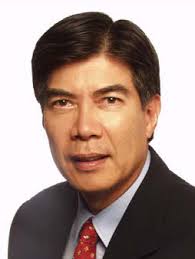Edwin Khew, Deputy President of the Institution of Engineers, Singapore (IES) and also chairman of the Sustainable Energy Association of Singapore shares his thoughts on various topics such as the fundamental and active role engineers have to play; sustainable engineering solutions or innovative technology in addressing the climate challenge; and how cities in Asia can achieve sustainable, low-carbon economy.
Climate change effects are already visible in most countries in Asia, mostly experiencing extreme weather events such as droughts, flooding, rising temperatures, sea level rise and fiercer typhoons. The region is highly vulnerable to the devastating impacts of climate change coupled with urbanization and rapid population growth. For many experts, climate-proofing is crucial in ensuring the integrity of infrastructures, and putting in place sustainability at the core of urban and industrial development amidst the impacts of climate change and natural disasters.
For Edwin Khew, Deputy President of the Institution of Engineers, Singapore (IES), engineers play essential role in first-hand know-how on sustainable and resilient future, as well as developing cost-effective technological solutions in addressing climate change.
Climate Change bring with it many extreme weather conditions, Khew pointed out. “These conditions bring heavy rain fall, strong winds, active lighting conditions, among others which creates floods, mudslides, strong winds which can bring catastrophic results affecting human lives and infrastructure.”
“ Engineers are equipped to design and build systems, such as larger and deeper drains to channel away water and underground tanks to store water during extreme floods, to counter all these events and to protect infrastructure, properties, human wellbeing and lives,” Khew explained.
Information about the IES shows that it was formally established in July 1966 as the national society of engineers in Singapore. IES is the premier engineering institution in Singapore and is called upon by the Government to provide feedback on professional engineering matters.
IES is well represented among the faculty members of the major engineering institutions of higher learning in Singapore. Through close collaboration with the local universities and polytechnics, IES organizes courses, seminars and talks for engineers and IES members to advance the continuous development of engineers.
The Institution maintains close links with professional organizations of engineers regionally and throughout the world. These include organizations in Australia, China, Japan, United Kingdom and the United States. The Institution also represents Singapore in the ASEAN Federation of Engineering Organizations (AFEO) and the Federation of Engineering Institutions of Asia and the Pacific (FEIAP) in promoting goodwill, fellowship and exchange of knowledge among all engineers in ASEAN and the Asia-Pacific region.
In many Asian countries, engineers are knowledgeable in developing new technologies that reduce environmental footprint like solar panels, hydrogen fuel cells, and other innovative technological solutions.
When asked about his perspective on the importance of low-carbon and sustainable construction from the built environment, Khew explained that sustainable construction requires using materials that use low amounts of energy to produce, which in turn contributes to a low carbon footprint or low carbon emissions to the environment.
Such materials, according to Khew, can include recycled construction & demolition waste (CDW), waste wood, plastics, among others, which can be recycled and treated to form aggregates, veneer for constructing prefab walls (from CDW) and wooden doors from veneer made from waste wood. Many other materials like waste plastics can be recycled to make park benches and tables and also road signs all contributing to a low carbon and sustainable build environment moving into the future, he added.
Khew also said that many governments in Asia provide investment incentives to attract green-technology solutions into their countries.
For instance, he said, countries provide feed in tariffs (FIT) for renewable/clean energy like solar, wind, biomass, biogas systems, which pays a premium for electricity generated using these clean tech, which are fed into the grid.
“ These technologies help reduce the countries dependence on fossil based fuel to produce power and therefore reduce the countries carbon foot print. Similarly technologies that use recycled material from waste for the construction industry also attract investments allowances or tax free holidays as these technologies reduce the volume of waste generated in their countries and therefore reduce the cost of disposal and in most cases also reduce the cost of construction for these materials used in their construction industry or exported for use in other countries as sustainable and low carbon construction materials,” Khew explained, adding that many countries in Europe, USA, Japan, Australia etc. have markets for these low carbon construction materials.
Khew will be taking a major role during the biennial World Engineers Summit (WES),www.wes-ies.org, organized by the IES in Singapore from July 21 to 24, 2015 at the Suntec Singapore Convention and Exhibition Centre.
The WES was launched in 2013 is a premier platform that focuses on addressing global challenges arising from the impact of climate change by gathering influential thought leaders, policy makers, specialists, business leaders, multi-disciplinary engineers and leading academics from across the globe, to exchange expert opinion and present sound engineering solutions for the future.
The conference is organized around four tracks covering a broad range of sustainability and resilience issues in the urban context, including Clean Environment & Water Resources, Sustainable Development & Infrastructure, and Sustainable Energy.



